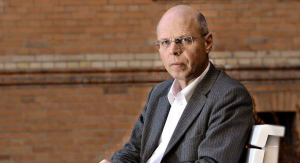One of our staff members is contributing considerably to a News Archiving service at Mu. Any well educated (Masters, PhD or above) users who wish to make comments on news sites, please contact Jim Burton directly rather than using this list, and we can work on maximising view count.
Preventionism: Difference between revisions
The Admins (talk | contribs) |
The Admins (talk | contribs) No edit summary |
||
| Line 3: | Line 3: | ||
CSA '''Preventionism''', sometimes referred to as (CSA) '''primary prevention''' with respect to [[Minor Attracted Person|MAPs]], is a philosophy within medicine, the mental health industry and public institutions, in which targeted interventions are made to pre-empt and prevent [[Child Sexual Abuse]]. | CSA '''Preventionism''', sometimes referred to as (CSA) '''primary prevention''' with respect to [[Minor Attracted Person|MAPs]], is a philosophy within medicine, the mental health industry and public institutions, in which targeted interventions are made to pre-empt and prevent [[Child Sexual Abuse]]. | ||
The idea, when applied to pedophiles and hebephiles (as in the famous German ''Prevention Project Dunkelfeld'') is highly controversial within the [[Minor-attracted community|MAP Community]]. This is because preventionist philosophy appears to presuppose that attraction is the principal driver of behaviors, when [[Research: Prevalence#Non-offending pedophiles|only a minority of offenders express preferential attractions]]. Preventionist philosophy has also been criticized as a totalizing blueprint for medical observation and control, fuelling undue suspicion | The idea, when applied to pedophiles and hebephiles (as in the famous German ''Prevention Project Dunkelfeld'') is highly controversial within the [[Minor-attracted community|MAP Community]]. This is because preventionist philosophy appears to presuppose that attraction is the principal driver of behaviors, when [[Research: Prevalence#Non-offending pedophiles|only a minority of offenders express preferential attractions]]. Preventionist philosophy has also been criticized as a totalizing blueprint for medical observation and control, fuelling undue suspicion. For example, Queer Theorists such as [[Richard Yuill]] and David Elliot<ref>[https://sci-hub.se/10.1080/19361653.2012.627726 Yuill, R., & Elliot, D. (2012). Researching and Theorizing the “Age Taboo” on Intergenerational Sexualities. Journal of LGBT Youth, 9(1), 67–71.]</ref> have made such criticisms in response to [[Sarah Goode]]. | ||
At the same time, destigmatization of attraction to minors is one central tenet of preventionist philosophy, since MAPs have to be willing to come forward in making contact with a care provider. Preventionists will sometimes point out that their focus on self-aware MAPs owes to the willingness of such people to make contact with a therapist when compared for example, to a person who is inclined towards or at risk of [[Wikipedia:Situational offender|situational offending]]. | |||
==Groups who advocate for primary prevention== | ==Groups who advocate for primary prevention== | ||
Revision as of 14:20, 29 August 2022

CSA Preventionism, sometimes referred to as (CSA) primary prevention with respect to MAPs, is a philosophy within medicine, the mental health industry and public institutions, in which targeted interventions are made to pre-empt and prevent Child Sexual Abuse.
The idea, when applied to pedophiles and hebephiles (as in the famous German Prevention Project Dunkelfeld) is highly controversial within the MAP Community. This is because preventionist philosophy appears to presuppose that attraction is the principal driver of behaviors, when only a minority of offenders express preferential attractions. Preventionist philosophy has also been criticized as a totalizing blueprint for medical observation and control, fuelling undue suspicion. For example, Queer Theorists such as Richard Yuill and David Elliot[1] have made such criticisms in response to Sarah Goode.
At the same time, destigmatization of attraction to minors is one central tenet of preventionist philosophy, since MAPs have to be willing to come forward in making contact with a care provider. Preventionists will sometimes point out that their focus on self-aware MAPs owes to the willingness of such people to make contact with a therapist when compared for example, to a person who is inclined towards or at risk of situational offending.
Groups who advocate for primary prevention
- Prostasia Foundation
- Virtuous Pedophiles
- Troubled Desire - I.e. outreach arm of the German Prevention Project Dunkelfeld.
See also
- NOMAP
- Anti-contact
- Sarah Goode - Early preventionist.
- Klaus Beier - German preventionist.
External links
- Troubled Desire
- Schicksal und Herausforderung - German.
- Global Prevention Project - Candice Christiansen is a sex-addiction therapist who serves on the United Nations Human Trafficking Task Force.
- CSA Primary Prevention